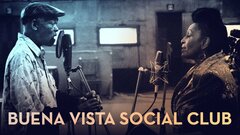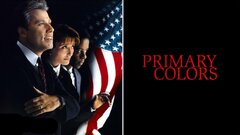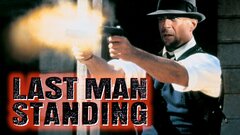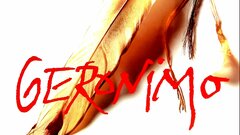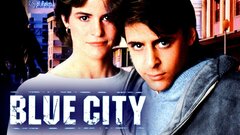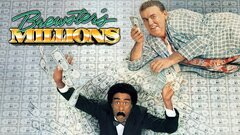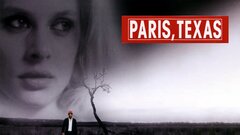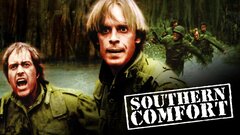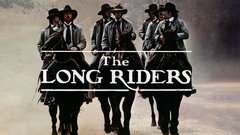Long before he had become the musician of choice to score Walter Hill films, as well as a frequent collaborator of German director Wim Wenders, Ry Cooder had established himself as a virtuoso of fretted instruments (i.e., banjo, Mexican tiple, Middle Eastern saz), backing the likes of Gordon Lightfoot, the Rolling Stones, Randy Newman and Neil Young. Particularly renowned for his blues-flavored slide guitar he allegedly inspired Duane Allman, resulting in the distinctive sound of the early Allman Brothers albums. As much a musicologist as a musician, with interests and expertise that run a wide gamut of musical history and genres, Cooder has sought out and championed such local styles as calypso, Hawaiian "slack-key" guitar (recording with Gabby Pahinui), Tex-Mex, gospel, country, jazz and the bedrock Cuban rhythm 'son', among others, in a diversified series of albums beginning with "Ry Cooder," his 1970 solo debut.
Cooder began playing the guitar at age three and became active in Southern California's blues and folk circles as a teenager. After playing with some unsuccessful bands (one fronted by vocalist Jackie DeShannon), he started the Rising Sons with fellow musician/musicologist Taj Mahal in 1966 and soon after became the guitarist for Captain Beefheart and the Magic Band, playing on their first album ("Safe as Milk" 1967) but abruptly quitting just before a scheduled appearance at the 1967 Monterey Pop Festival (thereby forcing the band to cancel). He also appeared on Mahal's debut album in 1967 before receiving his first feature credit as a music performer on "Candy" (1968).
Cooder has long maintained that his work can be heard extensively on the 1969 Stones LP "Let It Bleed"--even claiming the main guitar riff on "Honky Tonk Woman" as his own--but he only received credit for playing the mandolin on "Love in Vain." After signing a solo recording contract in 1969, he devoted less time to session work, although he did sit in on Little Feat's 1971 debut album, among his few dates in the 70s.
Cooder, following his eclectic tastes, bounced from style to style during the next decade, On "Paradise and Lunch" (1974), he recorded a duet with legendary jazz pianist Earl 'Fatha' Hines, whom he had long admired for the thrilling "compressed energy" of the 78s he cut with Louis Armstrong nearly a half-century before. He toured with a band that included Mexican accordionist Flaco Jiminez and a Tex-Mex rhythm section alongside gospel-style singers Bobby King, Eldridge King and Terry Evans, their music captured on the live "Showtime" (1977). He unveiled the early-jazz ragtime and vaudeville songs of "Jazz" (1978) at Carnegie Hall with an orchestral group and tap dancers and then dabbled in 50s and 60s rhythm and blues for several albums.
Cooder counts Bahamian guitarist Joseph Spence and Curtis Mayfield among his influences, and though he devoted much of the 80s to his film work, he shared his first Grammy with narrator Robin Williams for his change-of-pace children's recording "Pecos Bill" in 1989.
Cooder's first credit as a film score composer came on Hill's "The Long Riders" (1980, he also served as music arranger and music performer), inaugurating a long-standing, productive association with the producer-writer-director. To date, of his 11 films for Hill, the rock'n'roll fable "Streets of Fire" (1984) and the heavily blues-tinged drama "Crossroads" (1986) stand out for their music being central to the action, and the latter bore some resemblance to his own life story, heavily influenced as he was by old blues
greats like Blind Willie Johnson and Arthur 'Blind' Blake.
Some of his most distinctive work can be heard in Wenders' "Paris, Texas" (also 1984) as his spare instrumentation perfectly reflected the lonely emptiness of the desert landscape in the film's opening sequence. Cooder subsequently worked on two more fiction features with Wenders, "Until the End of the World" (1991) and "The End of Violence" (1997, the director's first American film since "Paris, Texas"). He has also contributed to films by Louis Malle ("Alamo Bay" 1985), Roger Donaldson
("Cocktail" 1988, "Cadillac Man" 1990) and Mike Nichols ("Primary Colors" 1998), among others.
Cooder picked up a second Grammy (Best World Music Album) for "A Meeting By the River," his 1994 collaboration with Indian musician V.M. Bhatt, and then in 1996 journeyed to Cuba with his percussionist son Joachim, where they planned to record with a mix of Cuban and African musicians. When the Africans didn't show, Cooder embarked on what would become his greatest accomplishment to date as a music archivist, unearthing pre-revolutionary legends like Company Segundo (nearly 90 and still performing in the tiny bar of a small hotel), Ruben Gonzales (who was playing piano for youth gymnastics classes) and Ibrahim Ferrer (who had abandoned singing for shining shoes).
The result, "The Buena Vista Social Club" (named for a long-defunct Havana music haunt), went on to win a 1998 Grammy for its mix of out-of-fashion Cuban styles united by their airy elegance and soulful charm. Hearing the CD sold Wenders on the idea of filming the 1999 documentary of the same name. Part travelogue and part concert film, it presented Havana as a crumbling pastel city filled with antique American cars and showed Cooder and his compadres at work in the studio and at concerts in
Amsterdam and at NYC's Carnegie Hall, capturing the moving experience of aging artists undergoing a creative rebirth.





